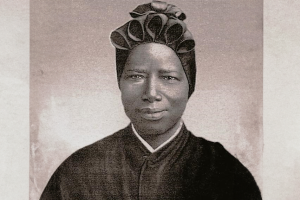The U.S. Conference of Catholic Bishops issued a pastoral letter on campus ministry, pledging their support for the ongoing effort to enrich the faith in colleges and universities in 1985.
“Empowered by the Spirit: Campus Ministry Faces the Future” recognized campus ministry as “vitally important for the future of the church and society.”
While the bishops issued the pastoral 27 years ago, it remains an influential document for campus outreach efforts across the country. The Catholic Campus Ministry Association, which counts more than 60 percent of college and university centers, uses the pastoral as a centering document.
The bishops called for college faith communities be faithful to the teachings of the church while adapting “the message of the Gospel to meet the needs of the academic community.” “Empowered by the Spirit” outlines six aspects that reflect the mission of the church on campus:
1. Forming the faith community
2. Appropriating the faith
3. Forming the Christian conscience
4. Educating for justice
5. Facilitating personal development
6. Developing leaders for the future
“These aspects give common language to campus ministers, even if they carry out these aspects in very different styles,” says Dominican Father Nathan Castle, pastor and director of the Catholic Community at Stanford. “They’re really written in such a way that they’re above any kind of liberal or conservative divide.”
Campus ministry should encourage theological study and an understanding of the religious nature of human beings, according to the pastoral. In this way, students can grow spiritually, morally and intellectually. Properly prepared and baptized students can be signs and instruments “of the kingdom.”
Father Castles sees this as characteristic of the Vatican II church. Catholics are called to service by the Holy Spirit in their mission, not just by a priest or sister. “It is a sign of hope that a growing number of lay people serve as leaders in the faith community on campus,” the bishops wrote back in 1985.
“A contemporary Christian humanism will flourish, which will demonstrate to all the value of an adult faith that has integrated the best insights of the culture,” the bishops wrote in the closing lines of the pastoral. “The church on campus will be seen more clearly as a genuine servant community, dedicated to social justice, and therefore will be a more effective sign and instrument of the kingdom of peace and justice in the world.”
This article is a web-only sidebar that accompanies “New man on campus: A new approach to Catholic campus ministry,” which appeared in the February 2012 issue of U.S. Catholic (Vol. 77, No. 2, pages 27-31).













Add comment